How long it really takes to sober up
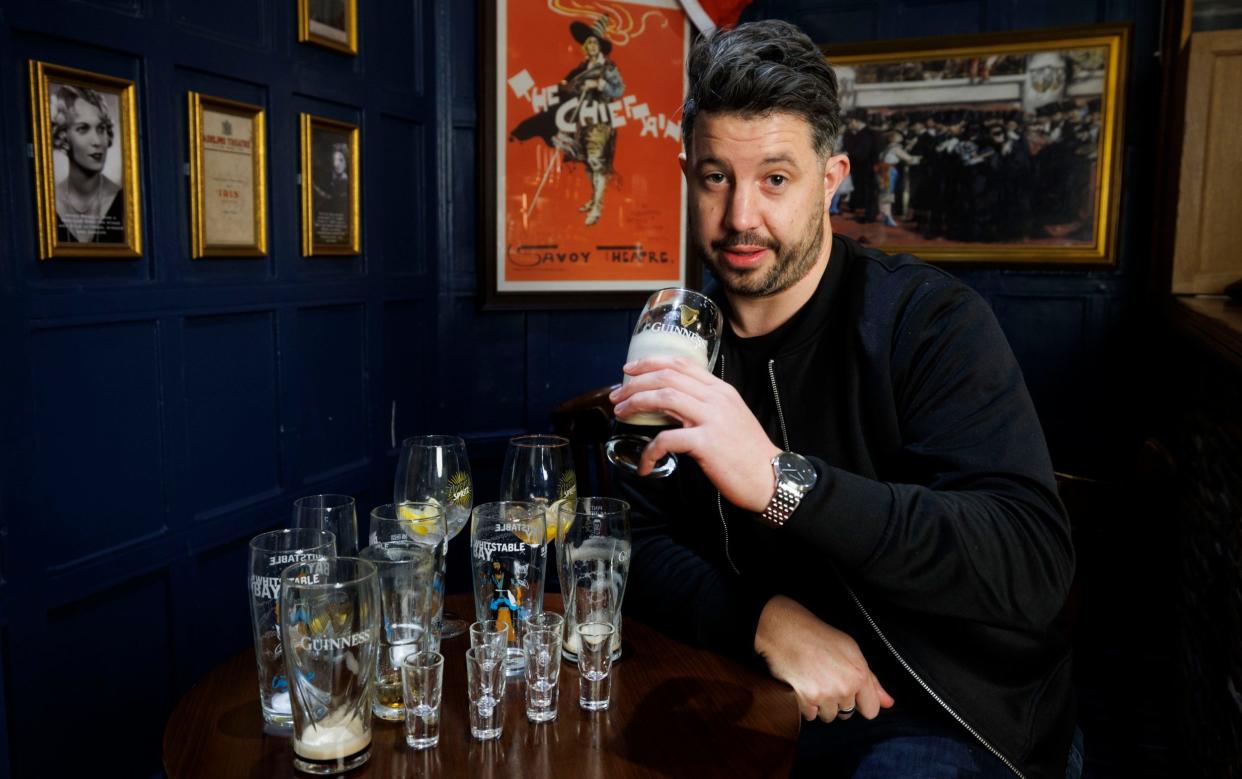
We’ve all been there. A big session the night before, followed by a lie in and a fry up to sober up. Then you’re fine to drive. Or are you? Doctors are planning to lobby the next government to reduce England’s drink-driving limit and it’s calling to question everything we once thought about how long it really takes us to sober up, and when it’s safe for us to drive.
Surely, a couple of pints with lunch and a five hour breather before driving home is fine?
Looking for the definitive answer, I turned to science to put it to the test – and to measure the impact binge drinking had on my body.
I’m wearing one of the Government’s alcohol tags, an electronic ankle bracelet that detects alcohol consumption through the skin by taking sweat samples every 30 minutes, 24 hours a day. It’s the Ministry of Justice’s newest tactic to curb alcohol-related crimes.
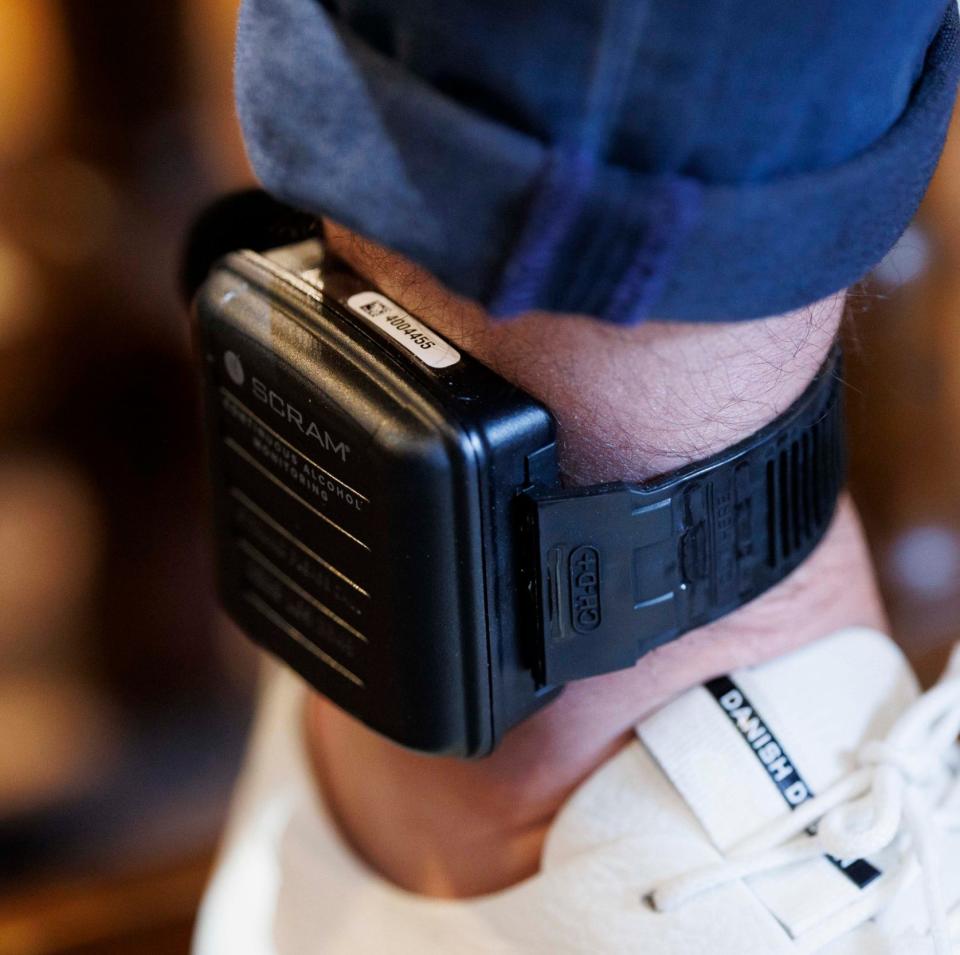
Those who commit crimes when under the influence of alcohol are released from prison on the condition they won’t drink alcohol. The tag allows probation officers to monitor their alcohol consumption. If they’re found to break their alcohol ban, they’re fined or sent back to prison.
I want to use the tag to monitor whether any of the remedies I fall back on to sober up actually make any difference. I’ll be able to see, through the same metrics the police use to monitor offenders, how the levels of alcohol alter in my body as I take it through the motions of my go-to sobering up routine.
My challenge is to drink as much as I can in two hours before attempting to sober up enough for the tag to say I was back to normal. And so, at midday, in the comfort of a pub in south London, it began.
Needless to say, after stage one of my mini-experiment, I’m worse for wear. I’m at my most drunk, five times the drink drive limit, at 9pm – seven hours after my last drink at 2pm. The tag revealed rather frighteningly that there was 400mg of alcohol in my blood. The current legal limit for driving is 80mg of alcohol per 100ml of blood, or 0.08 per cent.
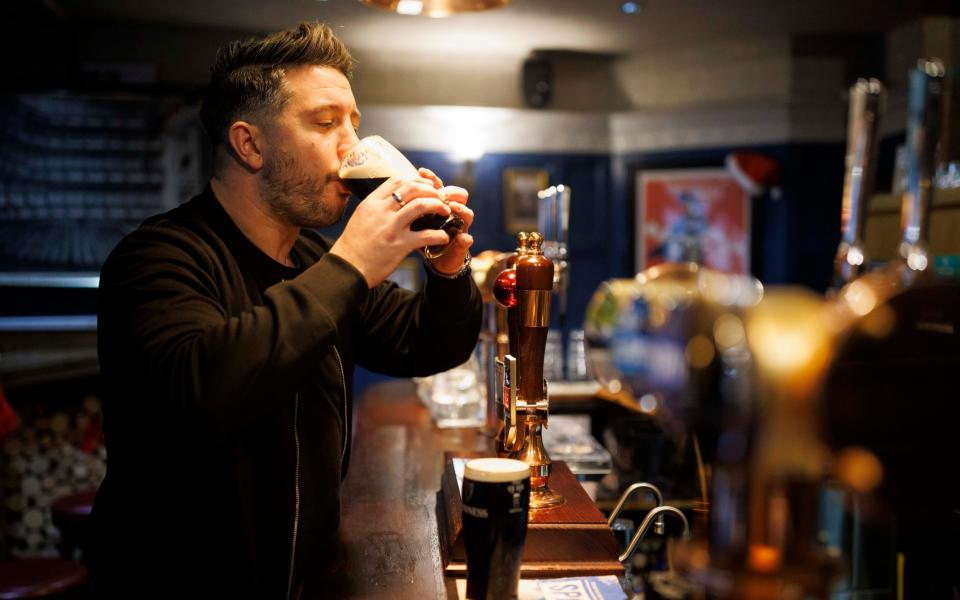
David Nutt, the author of Drink? The New Science of Alcohol and Your Health and a professor of neuropsychopharmacology at Imperial College London, explains what exactly is going on inside my body: “The alcohol you’re drinking goes into your stomach and sometimes through your duodenum in the small intestine. Then into the blood supply, before it goes into the liver.
“Your liver tries to clear it but when you put such a huge amount of alcohol in, the liver can’t clear it all. It breaks some of it down to something called acetaldehyde, which is why you get red and flushed and your blood pressure goes up and your heart rate goes up. The alcohol and the acetaldehyde then go into your brain. And in the brain, they do all the things we get from alcohol in terms of turning on or blocking different neurotransmitters.”
So, with all this going on inside my body, is there anything I can do to reverse the effects and sober up? Now, making my way home, the second half of my experiment begins.
Will water sober you up?
Like most people the first thing I tried to sober up was water. But even after two pints and one booze free hour I felt drunker than I had at the pub. That’s natural, says Prof Nutt, as the body is still processing the alcohol. “With some of the alcohol still in your stomach, the water will have slowed the process down. But it also stops you getting dehydrated which is one of the side effects of alcohol,” he explains. So whilst water doesn’t sober you up, had I not had the water, I’d have been even more drunk. And my hangover would’ve been worse.
Does exercise reduce the effects of alcohol?
I’ve been told you can sweat it out. So I tried doing some press ups to see whether that would sober me up. Unfortunately that didn’t work either.
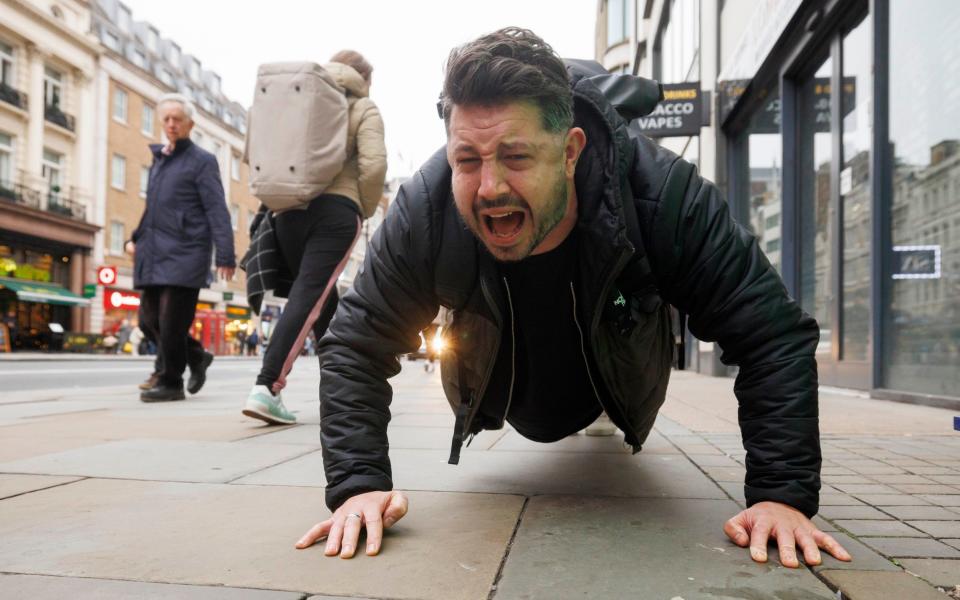
In theory, Prof Nutt says exercise can have an impact. “Alcohol is a foodstuff. It is an energy provider. So burning sugars by exercise will encourage alcohol to some extent to be shunted into the sugars. So it will help to moderate the level of alcohol. But I think the other good thing about exercise is that it will keep you awake to offset some of the sedating effects of the alcohol too.”
What difference will food make after drinking?
I’m something of an expert at the well-trodden practice of getting food in your system to “soak up the alcohol”. I’d planned to treat myself to a proper lunch. But, with the booze in my brain, McDonald’s was calling. My standard order of a couple of chicken mayos, some fries and a side of double cheeseburger, please.
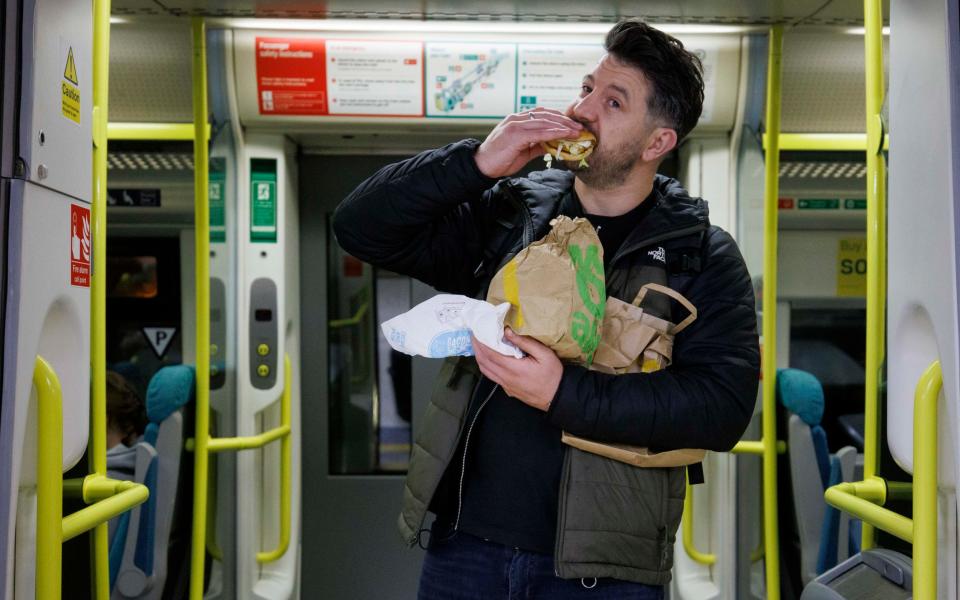
If drinking enough water was tricky, this was like chewing cement. Prof Nutt tells me that food “will slow down the alcohol being absorbed. But we have to remember the two factors in opposition here. You’ve got the alcohol going into the stomach and through the stomach and getting you drunk. And then you’ve got the liver clearing the alcohol. So the rising phase and the clearing phase are in opposition.”
Should you drink coffee if you are drunk?
Yet another pub tale is that coffee can sober you up. I tried it, with two flat whites.
It can, in theory, make you more alert. But it can’t sober you up. “Coffee is an alerting agent,” explains Prof Nutt. “So it definitely offsets the sedation and intoxication.”
The last resort: Does vomiting make you sober?
Prof Nutt explains that when we vomit after drinking it’s because of ‘gastric stasis’ – essentially the volume of alcohol poisoning the nerves in the stomach.
“There are cells called mast cells in the lining of your stomach and your intestines,” he explains. “When they get poisoned, they break down and release serotonin – a neurotransmitter and hormone that causes you to be sick when released in the stomach. There’s a sort of a paradoxical, fortuitous, accidental phenomenon of vomiting with alcohol that actually stops you dying of alcohol poisoning the brain because the stomach kicks it out first.”
The impact that vomiting had on my alcohol reading was interesting. There was an immediate drop-off in my alcohol but then the levels of alcohol in my system spiked again. Long-term, it had no impact whatsoever. Prof Nutt believes my vomiting episode did two things. “You threw up and that’s where you see the alcohol level drop. But some alcohol still made it to your intestine and was immediately absorbed into the small bowel. That’s when you see your alcohol levels go back up with a vengeance over the next few hours.”
Sleep at last
I hit the hay at 10.30pm. Sadly, sleep does absolutely nothing to sober you up, apart from passing the time. I wake up at 2am and drink two pints of orange squash. Still, no impact on my alcohol levels. When my three-year-old son wakes me up at 9am with a plateful of cooked breakfast, it’s a full 18 hours since my last drink and I’ve only just dropped under the current drink drive limit (at 6am). But I do still have alcohol in my system.
At 10am, another cold shower and a bit more water later, I’m finally sober. It’s now 20 hours after my last drink. But Prof Nutt has a word of warning for anyone thinking about getting behind the wheel. “A hangover is as dangerous as being over the limit when you’re driving,” he says. “If you have a crushing headache, lights are agitating you – it impairs driving like alcohol.” I certainly won’t be going anywhere near a wheel today – or a pub for that matter.
The amount of alcohol in your bloodstream and how it impacts your body
50mg: “You’re turning on the brain GABA system.” says Prof Nutt. It’s a system which sends out chemical messengers in the brain blocking certain signals in your central nervous system. “It’s relaxing you and it’s chilling you out, you’re more chatty, sociable.” Nutt. The British Medical Association (BMA), the doctors’ trade union, said in its consensus statement that the limit for driving should be decreased to 50mg, or 0.05 per cent, for most people and 20mg for new and commercial drivers. The 50mg limit would be roughly equivalent to one small glass of wine or beer but would vary according to factors such as weight and food consumption that day.
80mg: The current legal limit for driving per 100ml of blood in the UK. Or 0.08 per cent. It is currently one of the highest limits in Europe, after Malta proposed to lower its drinking limit from 0.08 per cent to 0.05 per cent.
100mg: “You begin to release dopamine and endorphins which makes you a bit high and a bit loud, and possibly a bit aggressive or a bit over the top.”
150mg: “You’re starting to block glutamate now. Glutamate is what lays down memories, so you’re starting to black out by blocking the glutamate system which causes amnesia.”
400mg: The amount of alcohol in Gareth’s bloodstream after his experiment. Five times what doctors want the drinking limit to be. Could be lethal in non-drinkers who do not have tolerance.

 Yahoo News
Yahoo News 
